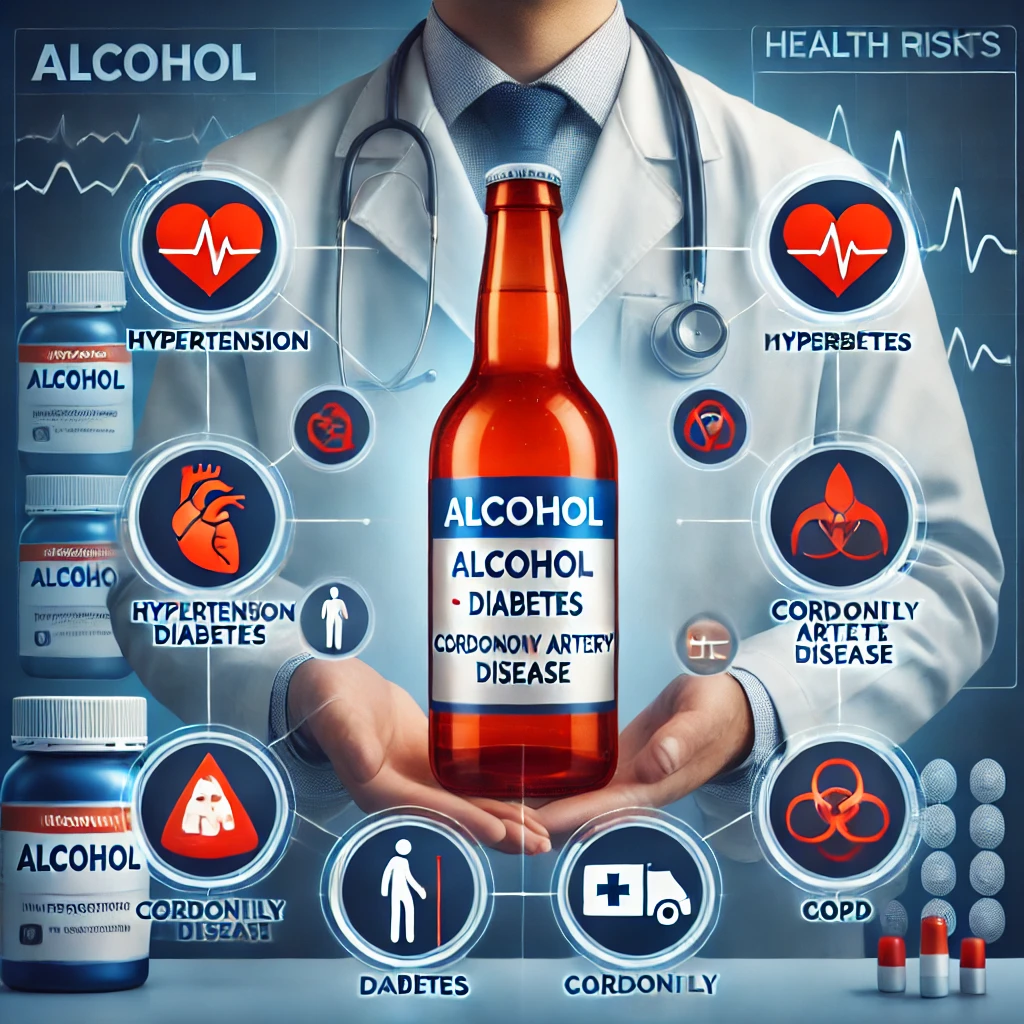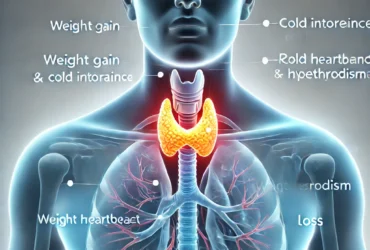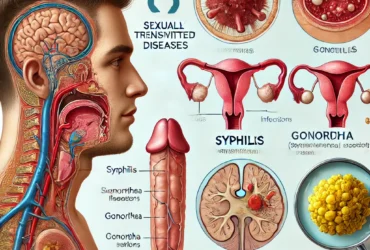Alcohol and Chronic Illness: What Patients Need to Know
Many patients with chronic conditions like hypertension, diabetes, chronic obstructive pulmonary disease (COPD), and coronary artery disease (CAD) often ask whether they can safely consume alcohol while taking medications. Alcohol being pretty popular in Nepal, specially while socializing and gatherings, many have a question is it safe to drink while taking medicines for their illness. While moderate alcohol consumption may be safe for some, it poses significant risks for many individuals with chronic illnesses. Understanding these risks can help you make informed decisions about alcohol use.
Alcohol and Its Effects on Chronic Conditions
1. Hypertension (High Blood Pressure)
- Alcohol raises blood pressure, even in small amounts. Regular consumption can worsen hypertension and increase the risk of heart attack and stroke.
- Some blood pressure medications (e.g., beta-blockers, ACE inhibitors) can interact with alcohol, causing dizziness, fainting, or severe drops in blood pressure.
2. Diabetes
- Alcohol can cause dangerous fluctuations in blood sugar levels, increasing the risk of hypoglycemia (low blood sugar) when taken with diabetes medications like insulin or sulfonylureas.
- Chronic alcohol use can worsen insulin resistance, making diabetes harder to control.
- Certain alcoholic beverages contain high sugar levels, leading to uncontrolled blood glucose spikes.
3. Chronic Obstructive Pulmonary Disease (COPD)
- Alcohol can suppress the immune system, making COPD patients more vulnerable to infections like pneumonia.
- It may interact with bronchodilators and steroids, leading to side effects such as drowsiness and respiratory depression.
- Drinking alcohol can impair lung function, making breathing difficulties worse.
4. Coronary Artery Disease (CAD)
- While some studies suggest moderate alcohol consumption might have cardiovascular benefits, excessive drinking increases the risk of high blood pressure, irregular heart rhythms, and heart failure.
- Alcohol interacts with many heart medications, including blood thinners like warfarin, increasing the risk of bleeding.
- Heavy drinking contributes to obesity and poor heart health, worsening CAD symptoms.
Alcohol and Medication Interactions
Many medications used to treat chronic illnesses interact negatively with alcohol, leading to serious side effects such as:
- Increased drowsiness and dizziness (e.g., blood pressure medications, sedatives, painkillers)
- Liver toxicity (e.g., statins, acetaminophen, antibiotics)
- Increased risk of stomach ulcers and bleeding (e.g., aspirin, NSAIDs, blood thinners)
- Worsening blood sugar control (e.g., insulin, diabetes pills)
When is Alcohol an Absolute Contraindication?
There are situations where alcohol should be completely avoided:
- Severe liver disease or cirrhosis – Alcohol can cause liver failure.
- History of alcohol dependence or abuse – Even small amounts can trigger relapse.
- Use of certain medications – Combining alcohol with some drugs (e.g., metronidazole, disulfiram) can cause severe reactions like nausea, vomiting, and rapid heart rate.
- Uncontrolled chronic illnesses – If your condition is unstable, alcohol can make it worse.
Conclusion: Should You Drink Alcohol?
If you have a chronic illness and are taking medication, it is best to consult your doctor before consuming alcohol. While occasional moderate drinking may be permissible for some, it can be harmful for others. Prioritizing your health means understanding how alcohol affects your condition and making safe choices.
If you have any questions, visit our clinic for personalized medical advice.
📞 01-4531078 or 01-4543386






